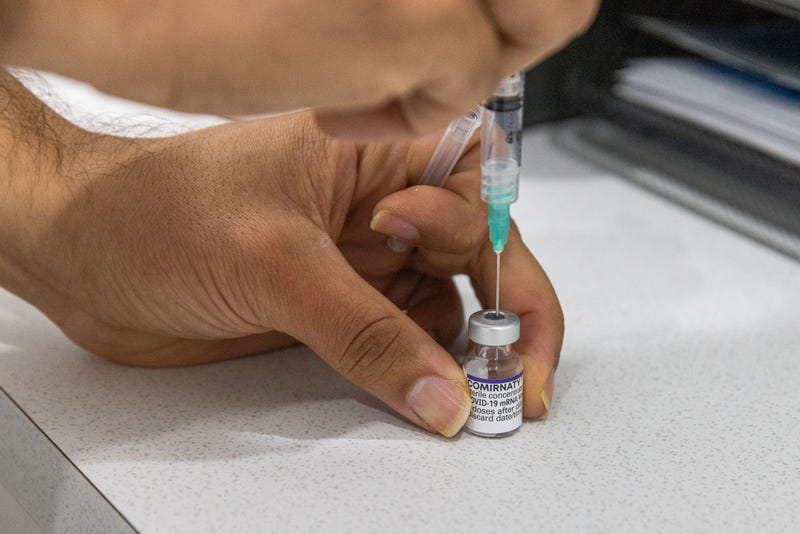
SAN FRANCISCO (KCBS RADIO) – Federal officials will meet this week to determine which Americans will be eligible for Moderna and Pfizer's updated COVID-19 vaccine boosters, and there are high hopes among medical experts that the new doses will allow the U.S. to put the worst of the pandemic behind it.
Dr. Deepta Bhattacharya, University of Arizona Professor of Immunology, told KCBS Radio's Melissa Culross and Eric Thomas during Thursday's "Ask An Expert" segment that although COVID-19's eradication remains unlikely, the tweaked booster doses offer hope that mass waves of infection could become far less common.
"The virus just has a lot of ways in which it can mutate and still retain its function, without taking a huge fitness cost," he said. "And so we can certainly do the best we can in guessing what it might do next, but I don't know if it can be forever, or eradicated.”
"But I certainly think improved vaccine formulations can buy us more time than what we're getting right now, which are these waves that hit us a few times a year," he continued. "Could we conceivably get it so that it's once every five years? I think that's possible. Full eradication probably isn't."
Neither Moderna nor Pfizer have completed studies in humans on the tweaked boosters, prompting some scientists to criticize the pace of development in the absence of meaningful data about the shots' effectiveness against the newer, dominant strains of the omicron variant.
Bhattacharya said Thursday that the release of strain-specific coronavirus vaccines is "long overdue," likening its necessity to those of yearly updates in the flu shot that address what forms of the virus are actually dominant.
"A lot of public health agencies, like the (World Health Organization) will recommend what the flu vaccine should contain depending on what happens to be circulating around the world," he explained. "And it's different every single year, and that's what I anticipate will happen with the coronavirus."
DOWNLOAD the Audacy App
SIGN UP and follow KCBS Radio
Facebook | Twitter | Instagram

